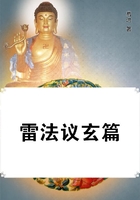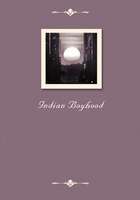Nor does that science require this for its physical explanations. Nay even if such grounds should be offered from other sources (for instance, the influence of immaterial beings), they must be rejected and not used in the progress of its explanations. For these explanations must only be grounded upon that which as an object of sense can belong to experience, and be brought into connection with our actual perceptions and empirical laws. But metaphysics leads us towards bounds in the dialectical attempts of pure reason (not undertaken arbitrarily or wantonly, but stimulated thereto by the nature of reason itself). And the transcendental Ideas, as they do not admit of evasion, and are never capable of realization, serve to point out to us actually not only the bounds of the pure use of reason, but also the way to determine them. Such is the end and the use of this natural predisposition of our reason, which has brought forth metaphysics as its favorite child, whose generation, like every other in the world, is not to be ascribed to blind chance, but to an original germ, wisely organized for great ends. For metaphysics, in its fundamental features, perhaps more than any other science, is placed in us by nature itself, and cannot be considered the production of an arbitrary choice or a casual enlargement in the progress of experience from which it is quite disparate. Reason with all its concepts and laws of the understanding, which suffice for empirical use, i.e., within the sensible world, finds in itself no satisfaction because ever-recurring questions deprive us of all hope of their complete solution. The transcendental ideas, which have that completion in view, are such problems of reason. But it sees clearly, that the sensuous world cannot contain this completion, neither consequently can all the concepts, which serve merely for understanding the world of sense, such as space and time, and whatever we have adduced under the name of pure concepts of the understanding. The sensuous world is nothing but a chain of appearances connected according to universal laws; it has therefore no subsistence by itself; it is not the thing in itself, and consequently must point to that which contains the basis of this experience, to beings which cannot be known merely as phenomena, but as things in themselves.
In the cognition of them alone reason can hope to satisfy its desire of completeness in proceeding from the conditioned to its conditions. We have above (Sects. 33, 34) indicated the limits of reason with regard to all cognition of mere creations of thought. Now, since the transcendental ideas have urged us to approach them, and thus have led us, as it were, to the spot where the occupied space (viz., experience) touches the void (that of which we can know nothing, viz., noumena), we can determine the bounds of pure reason. For in all bounds there is something positive (e.g., a surface is the boundary of corporeal space, and is therefore itself a space, a line is a space, which is the boundary of the surface, a point the boundary of the line, but yet always a place in space), whereas limits contain mere negations. The limits pointed out in those paragraphs are not enough after we have discovered that beyond them there still lies something (though we can never know what it is in itself). For the question now is, What is the attitude of our reason in this connection of what we know with what we do not, and never shall, know? This is an actual connection of a known thing with one quite unknown (and which will always remain so), and though what is unknown should not become the least more known-which we cannot even hope-yet the notion of this connection must be definite, and capable of being rendered distinct. We must therefore accept an immaterial being, a world of understanding, and a Supreme Being (all mere noumena), because in them only, as things in themselves, reason finds that completion and satisfaction, which it can never hope for in the derivation of appearances from their homogeneous grounds, and because these actually have reference to something distinct from them (and totally heterogeneous), as appearances always presuppose an object in itself, and therefore suggest its existence whether we can know more of it or not. But as we can never know these beings of understanding as they are in themselves, that is, definitely, yet must assume them as regards the sensible world, and connect them with it by reason, we are at least able to think this connection by means of such concepts as express their relation to the world of sense. Yet if we represent to ourselves a being of the understanding by nothing but pure concepts of the understanding, we then indeed represent nothing definite to ourselves, consequently our concept has no significance; but if we think it by properties borrowed from the sensuous world, it is no longer a being of understanding, but is conceived as an appearance, and belongs to the sensible world. Let us take an instance from the notion of the Supreme Being. Our deistic conception is quite a pure concept of reason, but represents only a thing containing all realities, without being able to determine any one of them; because for that purpose an example must be taken from the world of sense, in which case we should have an object of sense only, not something quite heterogeneous, which can never be an object of sense.















